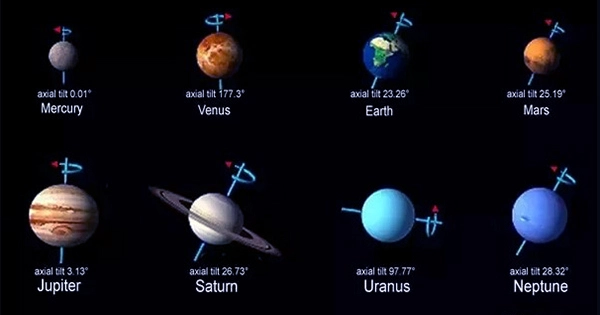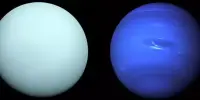Let’s face it: Venus is an oddball. Due to its size and density, the planet is frequently referred to as Earth’s “twin,” yet it is actually very different from our own. Venus’s atmosphere is nearly 90 times more pressurized than Earth’s. If you were fortunate enough to visit for a day, you would observe that the sun rises in the west and sets in the east, which is completely the opposite of how it rises and sets where you are from.
You would have to be there for a very long time to see this because a Venus day lasts 243 Earth days, which is slightly longer than its year of 225 Earth days. During this time, you would have plenty of opportunities to wonder what the hell is going on while being crushed to a pulp by the pressure and consumed by the 900 degrees Fahrenheit (480 degrees Celsius) temperatures.
Why then does it revolve in the opposite direction from all the other planets in our solar system? First off, it’s excellent to know that it shouldn’t truly be done. It is thought that our planets’ spin was established when they first emerged from a whirling cloud of gas. Its spin, along with Uranus’s, which spins on its side, is thought to have been changed later.
The story may be straightforward in Uranus’ case. Uranus received a blow from a massive object, or a series of smaller impacts, at some point in the past that caused the tilted spin we observe today. The same may have happened to Venus; one or more objects may have slammed into it, turning it upside-down from our perspective, or an impact may have delayed and completely reversed the planet’s spin.
The planet’s fast-moving atmosphere interacted with its surface to change its speed and spin, according to a somewhat more complex hypothesis. According to a news release from Stephen Kane of the University of California, Riverside, “We think of the atmosphere as a thin, virtually distinct layer on top of a planet that has limited contact with the main planet” in April 2022.
He claimed in a study that Venus might serve as a helpful comparison for tidally locked exoplanets because, without its rapid, soupy atmosphere, Venus would be tidally locked to the Sun like the Moon is to Earth. Instead, the planet is able to spin, albeit slowly, as a result of the atmosphere’s interaction with the planet, which might account for the planet’s rising rate of rotation over time. The planet’s strong atmosphere, according to Kane, “teaches us that it’s a lot more interwoven aspect of the globe that impacts almost everything, including how quickly the planet rotates.”














